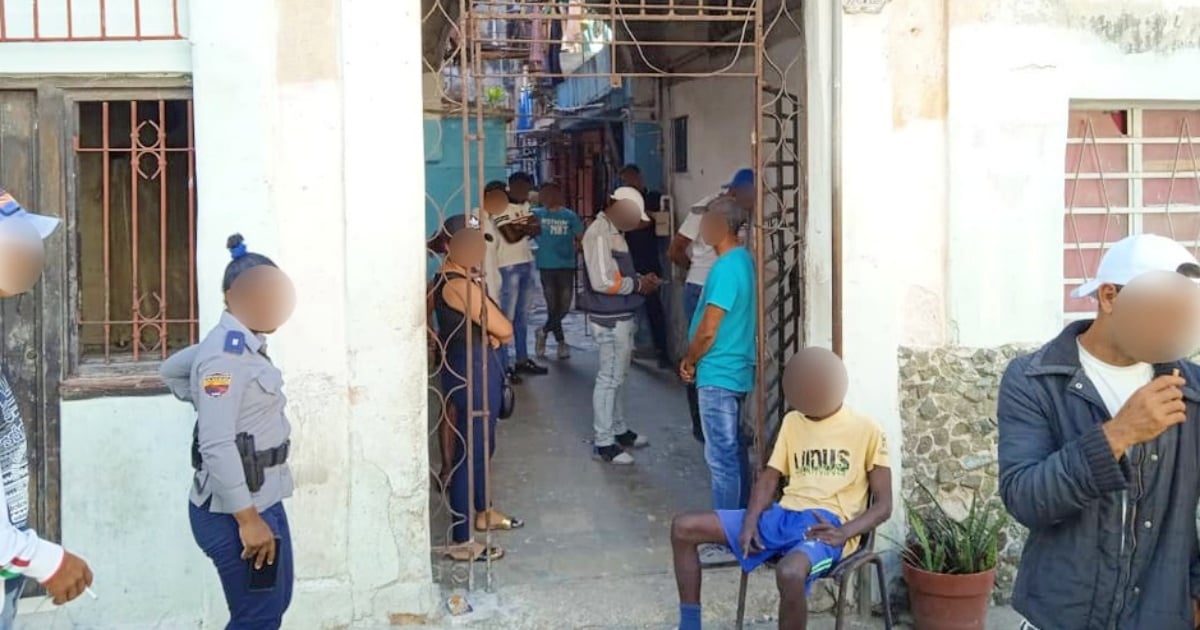In a recent police operation in the Cayo Hueso neighborhood of Central Havana, authorities detained a man from Cienfuegos for allegedly selling drugs, including crack, a powerful cocaine derivative. The arrest occurred on Monday on Márquez González Street, between Neptuno and Concordia. The individual, who was living there illegally, was caught attempting to sell illegal substances to a buyer, according to the official Facebook page of Elizabeth Ferrer.
Upon his arrest, the suspect was found with a green capsule containing 15 rocks of crack. Authorities later discovered a stash in the ceiling at the entrance of his residence, which included 21 synthetic cannabinoid cigarettes. The official statement emphasized that "Cuba remains steadfast in its fight against drugs" and warned that "those involved in this scourge will not be granted impunity."
The source stressed the importance of public awareness about the severity of the drug issue and the need for collective efforts to combat drug trafficking and consumption. However, officials have not provided any formal information about the case or potential charges against the detainee.
Understanding Crack
Crack is a highly addictive drug derived from cocaine. It appears as white crystals or rocks and is typically smoked in a pipe, creating an immediate but short-lived high. The substance is created by processing powdered cocaine with water and baking soda or ammonia. Unlike powdered cocaine, which is generally snorted, crack is smoked, allowing the chemicals to rapidly reach the brain and produce intense euphoria in seconds.
The effects of crack manifest almost instantly, within 5 to 10 seconds, but last only about 5 to 15 minutes. It induces an intense feeling of pleasure and increased energy, followed by a swift crash that can lead to anxiety, paranoia, and depression. Due to its powerful and short-lived effects, crack is highly addictive, often leading users to consume it repeatedly in short intervals.
Long-term crack use can have severe health consequences, affecting the central nervous system, causing heart attacks, strokes, and respiratory problems. Frequent use also leads to cognitive decline and psychiatric issues, such as psychosis and severe depression. Crack is one of the most dangerous drugs due to its high addiction potential and the serious harm it does to physical and mental health.
Police Intensify Drug Operations in Havana
There has been a significant increase in police operations targeting drug trafficking in Havana recently. Various official social media profiles have reported on the seizure of narcotics and arrests across multiple municipalities, sharing data and images of the incidents.
The authorities have confiscated not only drugs like "the chemical," marijuana, and even cocaine but also large sums of money and equipment used in the production of these illicit substances. The Cuban regime claims to have launched a war on narcotics, advocating a zero-tolerance stance.
In a public address in February, Prime Minister Manuel Marrero Cruz highlighted that synthetic substances are being introduced into the country through "new methods and techniques," impacting national security. Amidst growing reports from the population and independent media about the consumption of "the chemical"—the most widespread drug in the country—the Cuban government proposed establishing the National Drug Observatory (OND). This institution, under the Ministry of Justice (MINJUS), aims to monitor and oversee the drug phenomenon on the island.
Through an Early Warning System, the OND seeks to identify new psychoactive substances and mitigate the risks associated with their use and distribution.
Frequently Asked Questions About Drug Trafficking in Cuba
What is the current status of drug trafficking in Cuba?
Drug trafficking in Cuba is a growing concern, with reports of increased police operations targeting drug dealers and users. The government is taking strict measures to combat this issue, including establishing the National Drug Observatory to monitor and address the situation.
What substances are most commonly seized in Havana?
In Havana, authorities frequently seize a variety of drugs, including marijuana, synthetic cannabinoids, cocaine, and "the chemical," a substance that has gained notoriety as one of the most prevalent drugs in the country.
How does crack affect health?
Crack is extremely addictive and can cause severe health issues, including damage to the central nervous system, increased risk of heart attacks and strokes, respiratory problems, cognitive decline, and psychiatric disorders such as psychosis and depression.
